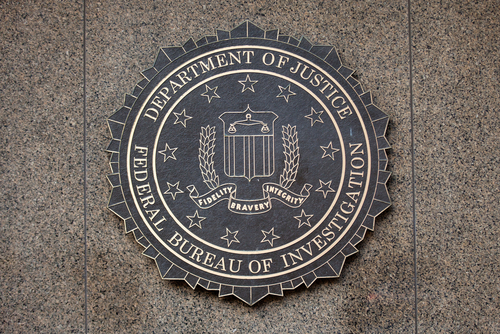The United States Federal Bureau of Investigation (FBI) is increasingly focused on targeting transnational organised crime, aiming to bring down entire criminal organisations, as opposed to key individuals where the organisation often continues to operate.
On its website, the Bureau provides insight into how it targets transnational organised crime, and identifies some of the key global threats.
What is transnational organised crime?
The FBI defines transnational organised crime (TOC) groups as:
Those self-perpetuating associations of individuals who operate transnationally for the purpose of obtaining power, influence, and monetary and/or commercial gains, wholly or in part by illegal means, while protecting their activities through a pattern of corruption and/or violence, or while protecting their illegal activities through a transnational organizational structure and the exploitation of transnational commerce or communication mechanisms.
Common activities of TOC groups include drug trafficking, migrant smuggling, human trafficking, money laundering, firearms trafficking, illegal gambling, extortion and cybercrime.
Technological advances and the increased availability of the internet worldwide mean that these groups can target victims anywhere in the world. Therefore, whilst these groups are based across various continents, their impact is not limited to geographical boundaries.
How does the FBI combat these threats?
The FBI´s transnational crime program focuses on eliminating the criminal enterprises that pose the greatest threat to the United States.
The Bureau uses the RICO Act to expand criminal accountability for a number of “predicate offences”. Rather than targeting a single criminal act, this approach allows the FBI to disrupt or dismantle the entire enterprise.
“Significant racketeering activities” are defined as those predicate criminal acts that are chargeable under RICO, such as bribery, money laundering and drug trafficking.
The FBI also utilises international intelligence and law enforcement partnerships, and its worldwide presence, to assist in achieving its goals. This involves deploying experts to international locations to develop strategies to address TOC matters impacting the region, as well as to identify targets of mutual interest.
International Organized Crime Intelligence and Operations Center (IOC-2)
The FBI is a part of the IOC-2, which combines the resources and information of nine U.S. law enforcement agencies, as well as federal prosecutors, to collectively combat the threats posed by international organised crime.
The work of the IOC-2 includes conducting multi-jurisdictional, multi-agency, and multi-national law enforcement operations, investigations, prosecutions, and forfeiture proceedings, as well as analysing and disseminating information to support investigations.
Which TOC groups pose the greatest worldwide threat?
The FBI outlines some of the key transnational organised crime groups worldwide, which either operate in or cause significant harm to the United States.
African transnational organised crime groups
- Have developed rapidly since the 1980´s due to globalisation and advanced communications technology.
- Expanding globally, developing networks within more prosperous countries and targeting international victims.
- Primary activity is drug trafficking, as well as financial fraud. Money laundering helps to facilitate ongoing operation.
Balkan transnational organised crime groups
- Politically and financially motivated groups associated with Albania, Bosnia-Herzegovina, Croatia, Kosovo, Macedonia, Serbia and Montenegro, Bulgaria, Greece, and Romania.
- Unlike traditional organised crime groups, Balkan groups do not appear to operate under a traditional hierarchy, but rather around ethnic associations and friendship ties.
- Adept at adopting new technologies, expand their operations through cyber-enabled fraud.
- Engage in a range of criminal activity including fraud, money laundering, drug trafficking, human smuggling, prostitution, and extortion.
Middle eastern transnational organised crime groups
- The FBI recognises that Middle Eastern criminal groups are often non terrorist groups, rather aiming to make money through illegal activities.
- Typically loosely organised theft or financial fraud rings formed along familial or tribal lines, and include criminals from Afghanistan, Egypt, India, Iran, Iraq, Israel, Jordan, Lebanon, Morocco, Oman, Pakistan, Syria, United Arab Emirates, and Yemen.
- Engage in a range of criminal activities including automobile theft, fraud, money laundering, drug trafficking and sales of counterfeit goods.
Asian transnational organised crime groups
- Linked to China, Korea, Japan, Thailand, the Philippines, Cambodia, Laos, and Vietnam, as well as emerging threats such as groups from South Pacific island nations.
- Extensive national and international networks, multilingual, sophisticated operations and extensive financial capabilities.
- Engage in extortion, murder, kidnapping, illegal gambling, prostitution, drug trafficking, financial frauds and money laundering.
- Increasingly engaging in white-collar crimes and combining illegal activities with legitimate business ventures.
Eurasian transnational organised crime groups
- Associated with the former Soviet Union or Central Europe.
- Divided into supporting networks, each having a different function contributing to a common goal, as opposed to a typical hierarchical structure.
- Engage in fraud, money laundering, drug trafficking, extortion, theft and murder.
Italian transnational organised crime groups/Mafia
- Some of the most notorious and widespread of all criminal societies.
- The FBI estimates that four of the key groups have approximately 25,000 members, with 250,000 affiliates in Canada, South America, Australia, and parts of Europe. They are also known to collaborate with other international organised crime groups from all over the world.
- Engage in drug trafficking, money laundering, illegal gambling, political corruption, extortion, kidnapping, fraud, murder and weapons trafficking.



